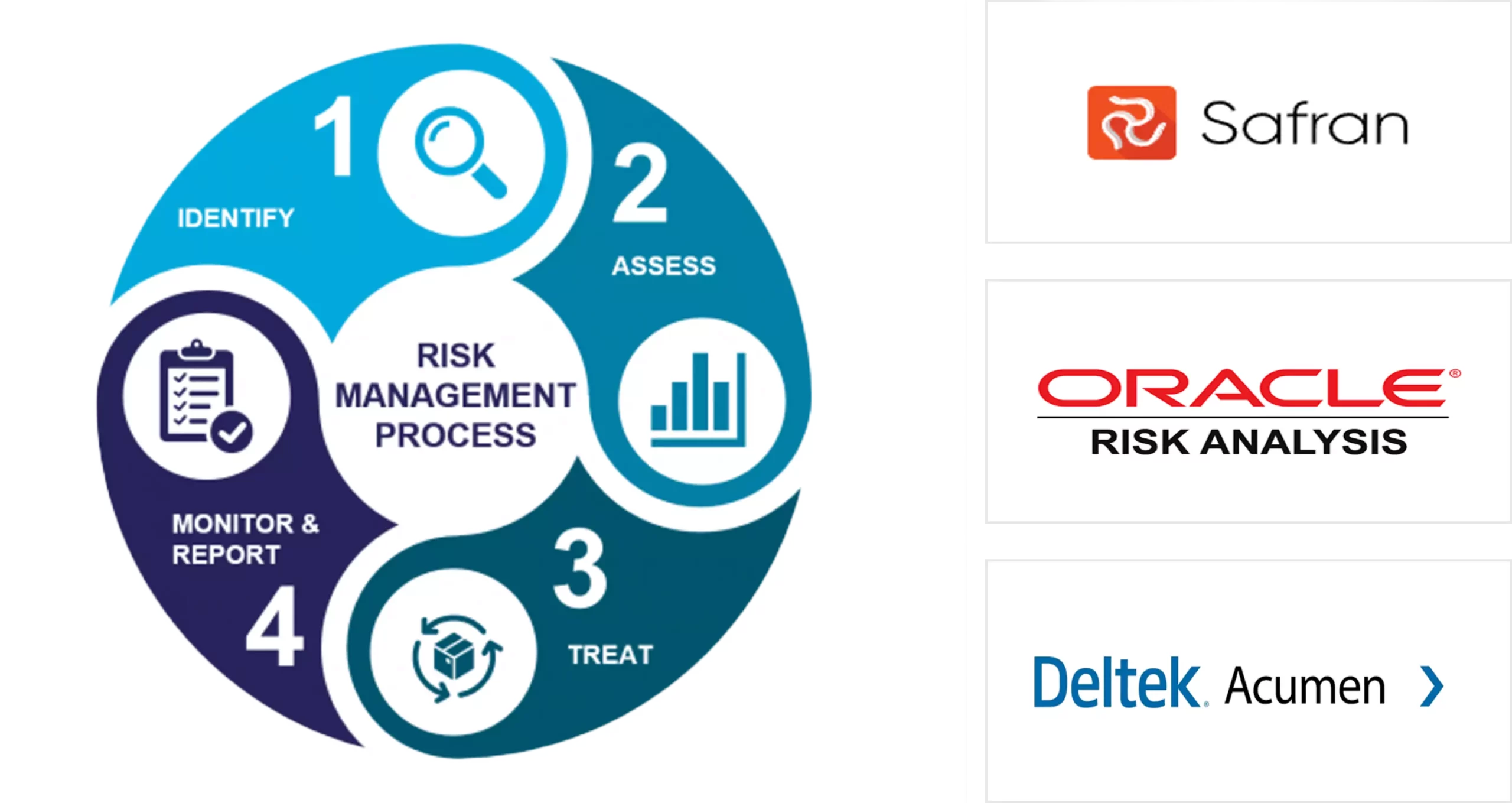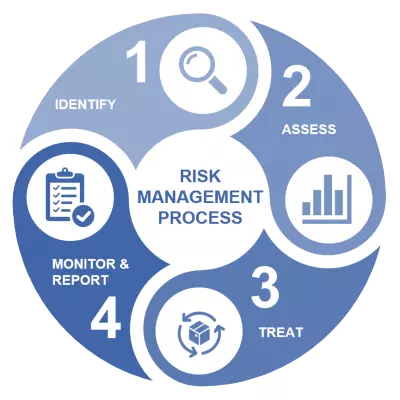Services | Project Controls | Risk Management
Risk Management
Risk management is a vital aspect of project management that focuses on identifying, assessing, and addressing uncertainties that may affect a project’s objectives, timeline, budget, or performance. A comprehensive risk management strategy consists of several key components:
Risk identification: This involves recognizing potential risks and threats that could affect the project. Risk identification techniques include brainstorming, expert interviews, historical data analysis, and SWOT (Strengths, Weaknesses, Opportunities, and Threats) analysis. The goal is to create a comprehensive list of risks that may impact the project.
Risk assessment: Once risks are identified, they need to be evaluated based on their likelihood and potential impact on the project. This assessment can be qualitative (categorizing risks as low, medium, or high) or quantitative (assigning numerical values to risks). The outcome of this assessment helps prioritize risks and determine the appropriate response strategies.
Risk register management: A risk register is a document or tool used to record and track identified risks, their assessments, and response plans. It serves as a central repository for risk information and helps project teams monitor and control risks throughout the project lifecycle.
Qualitative risk assessments: These assessments involve categorizing risks based on their likelihood and impact using a qualitative scale (e.g., low, medium, high). This process helps prioritize risks and provides a general understanding of the potential consequences to the project.
Quantitative risk analyses: Quantitative risk analyses involve assigning numerical values to risks’ likelihood and impact, enabling a more precise evaluation of their potential effects on the project. Techniques such as Monte Carlo simulations, sensitivity analyses, and decision tree analyses can be used to estimate the probability of achieving project objectives or the potential financial impact of risks.
Risk mitigation strategies: Developing risk mitigation strategies involves formulating appropriate responses to minimize the potential impacts of risks on the project.
Common risk response strategies include:
Avoidance: Altering the project plan to eliminate the risk entirely.
Mitigation: Taking actions to reduce the likelihood or impact of the risk.
Transfer: Shifting the responsibility for the risk to a third party, such as
through insurance or contracts.
Acceptance: Acknowledging the risk and developing a contingency
plan to deal with the consequences if it occurs.
An effective risk management strategy enables project teams to proactively address uncertainties, minimize potential adverse effects, and improve project performance. By regularly reviewing and updating the risk management plan, teams can adapt to changing circumstances and ensure that project objectives are achieved with minimal disruption.
Primavera Risk Analysis, Safran Risk, and Deltek Acumen 360 are specialized software tools designed to support and enhance risk management processes in project management. These tools offer advanced features for identifying, assessing, and mitigating risks, enabling project teams to make data-driven decisions and improve project outcomes.

Deltek Acumen 360: Deltek Acumen 360 is a comprehensive project risk management solution that offers advanced analytics and simulation capabilities to support decision-making in complex projects. Key features include:
- Schedule and cost risk analysis: Evaluated the impact of risks on project schedules and budgets using advanced analytics.
- Uncertainty modeling: Capture and analyze the uncertainties associated with project tasks, resources, and costs to develop more accurate forecasts.
- Risk scenario planning: Model different risk scenarios to explore the potential consequences of various risk response strategies and make informed decisions.
- Integration with popular scheduling tools: Import project data from leading scheduling tools such as Microsoft Project, Oracle Primavera P6, and Deltek Open Plan for seamless risk analysis.
Safran Risk: Safran Risk is an advanced risk management software that provides comprehensive risk modeling and analysis capabilities for complex projects. Key features include:
- User-friendly interface: A visually intuitive interface that simplifies risk identification, assessment, and reporting.
- Integrated cost and schedule risk analysis: Combine cost and schedule data to create a unified risk model that helps project teams understand the full impact of risks.
- Advanced risk modeling: Incorporate risk events, uncertainties, and mitigation strategies into your project model to develop more accurate and reliable project forecasts.
- Customizable risk reporting: Generate tailored risk reports to communicate risk information effectively to stakeholders.
Primavera Risk Analysis: Primavera Risk Analysis is a powerful software solution by Oracle that integrates cost and schedule risk management, helping project teams to model risks and analyze their impact on project objectives. Key features include:
- Risk identification and assessment: Identify risks and assess their likelihood and impact using qualitative and quantitative techniques.
- Monte Carlo simulations: Run simulations to estimate the probability of achieving project objectives and quantify the potential impact of risks on project timelines and budgets.
- Risk response planning: Develop risk mitigation strategies and EVMluate their effectiveness in reducing overall project risk exposure.
Integration with Primavera P6: Seamlessly import project data from Primavera P6 for risk analysis and export risk-adjusted schedules back to P6 for project execution

By incorporating these specialized risk management tools into their processes, project teams can better anticipate and address potential risks, resulting in improved project performance and a higher likelihood of achieving project objectives.
Let’s get in touch
